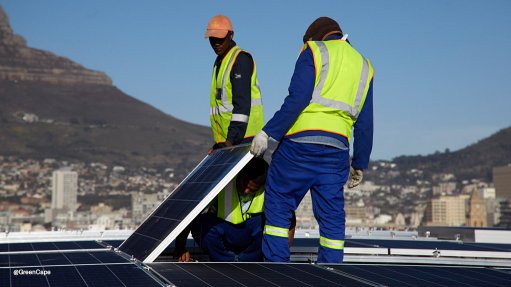Petrochemicals becoming driver of global oil demand – IEA
Petrochemicals are becoming the biggest drivers of global oil demand, ahead of cars, planes and trucks, a study undertaken by the International Energy Agency (IEA) has revealed.
Petrochemicals, which are components derived from oil and gas that are used in all sorts of daily products, such as plastics, fertiliser, packaging, clothing, digital devices, medical equipment, detergents and tyres, are set to account for more than a third of the growth in global oil demand by 2030, and nearly half the growth to 2050.
This, the study points out, will add nearly seven-million barrels a day of oil demand by then.
The study, titled ‘The Future of Petrochemicals’, is part of a new IEA series focusing on ‘blind spots’ of the global energy system, namely issues that are critical to the evolution of the energy sector but receive less attention than deserved.
The report is among the most comprehensive reviews of the global petrochemicals sector, according to the IEA, and follows other reports in the series, including the impact of air conditioners on electricity demand, the impact of trucking on oil demand and the role of modern bioenergy in the renewables sector.
Petrochemicals are particularly important given how prevalent they are in everyday products, the IEA notes.
“Our economies are heavily dependent on petrochemicals, but the sector receives far less attention than it deserves,” said IEA executive director Dr Fatih Birol.
“Petrochemicals are one of the key blind spots in the global energy debate, especially given the influence they will exert on future energy trends. In fact, our analysis shows they will have a greater influence on the future of oil demand than cars, trucks and aviation.”
Demand for plastics – the key driver for petrochemicals from an energy perspective – has outpaced all other bulk materials, such as steel, aluminium or cement, and has nearly doubled since 2000.
Advanced economies currently use up to 20 times more plastic and up to ten times more fertiliser than developing economies on a per capita basis, underscoring the huge potential for global growth, the IEA states.
The dynamism of the petrochemicals industry is also driving new trends around the world. After decades of stagnation and decline, the US has re-emerged as a low-cost location for chemicals production, as a result of the shale gas revolution, and is now home to about 40% of global ethane-based petrochemicals production capacity.
Meanwhile, the Middle East remains the lowestcost centre for many key petrochemicals, with a host of new projects announced across the region.
Petrochemical products provide substantial benefits for society, including a growing number of applications in various cutting-edge, clean technologies critical to sustainable energy systems.
Birol explains, however, that the production, use and disposal of petrochemicals- derived products present a variety of climate, air quality and water pollution challenges that need to be addressed.
While substantial increases in recycling and efforts to curb single-use plastics are under way, especially in Europe, Japan and Korea, the impact these efforts can have on the demand for petrochemicals is far outweighed by sharply increasing plastic consumption in emerging economies.
To address these challenges, the report outlines a clean technology scenario (CTS), which provides an alternative future in line with key United Nations Sustainable Development Goals, such as climate action and responsible consumption, besides others.
The scenario provides an ambitious but achievable pathway to reduce the environmental impacts of petrochemicals, which include air pollutants from primary chemicals production declining by almost 90% by 2050, direct carbon dioxide emissions reducing by nearly 60% and water demand being nearly 30% lower than in the base scenario.
It also emphasises waste management improvements to rapidly increase recycling, thereby laying the groundwork to more than halve cumulative, ocean-bound, plastic waste by 2050.
In the CTS, petrochemicals become the only growing segment of global oil demand.
Despite near tripling in plastic waste collection by 2050, the limited availability of cost-effective substitutes for oil feedstock means that oil demand for petrochemicals remains resilient, the IEA says.
Comments
Press Office
Announcements
What's On
Subscribe to improve your user experience...
Option 1 (equivalent of R125 a month):
Receive a weekly copy of Creamer Media's Engineering News & Mining Weekly magazine
(print copy for those in South Africa and e-magazine for those outside of South Africa)
Receive daily email newsletters
Access to full search results
Access archive of magazine back copies
Access to Projects in Progress
Access to ONE Research Report of your choice in PDF format
Option 2 (equivalent of R375 a month):
All benefits from Option 1
PLUS
Access to Creamer Media's Research Channel Africa for ALL Research Reports, in PDF format, on various industrial and mining sectors
including Electricity; Water; Energy Transition; Hydrogen; Roads, Rail and Ports; Coal; Gold; Platinum; Battery Metals; etc.
Already a subscriber?
Forgotten your password?
Receive weekly copy of Creamer Media's Engineering News & Mining Weekly magazine (print copy for those in South Africa and e-magazine for those outside of South Africa)
➕
Recieve daily email newsletters
➕
Access to full search results
➕
Access archive of magazine back copies
➕
Access to Projects in Progress
➕
Access to ONE Research Report of your choice in PDF format
RESEARCH CHANNEL AFRICA
R4500 (equivalent of R375 a month)
SUBSCRIBEAll benefits from Option 1
➕
Access to Creamer Media's Research Channel Africa for ALL Research Reports on various industrial and mining sectors, in PDF format, including on:
Electricity
➕
Water
➕
Energy Transition
➕
Hydrogen
➕
Roads, Rail and Ports
➕
Coal
➕
Gold
➕
Platinum
➕
Battery Metals
➕
etc.
Receive all benefits from Option 1 or Option 2 delivered to numerous people at your company
➕
Multiple User names and Passwords for simultaneous log-ins
➕
Intranet integration access to all in your organisation


















